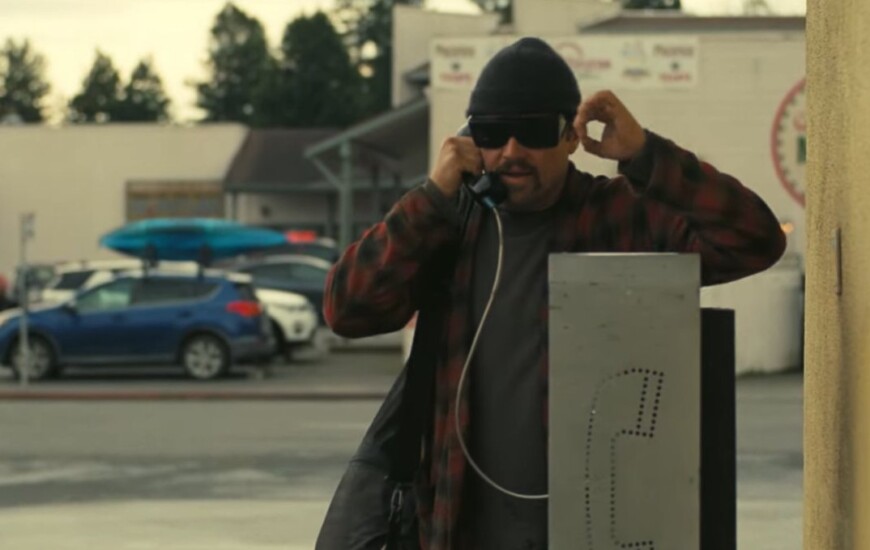One Battle After Another is a pyrrhic victory
Mike Finnerty 24 Sep 2025
American auteur Paul Thomas Anderson has been described as the heir to Robert Altman and Jonathan Demme, and just like his idols, he is willing to work in whatever genre will take him.
Best known for his collaborations with Daniel Day-Lewis, PTA has amassed a loyal following thanks to his richly written and brilliantly-acted epics that have never quite clicked with the Oscars.
With his latest film, One Battle After Another, he is going for the mainstream and the Oscars but don’t get it twisted – this is still very much an auteur being given free rein within the studio system.
To understand the PTA arc, it pays to have a working knowledge of Michael De Luca.
De Luca’s arc is roughly concurrent with PTA as both men made a huge splash in Hollywood in the late 90s and were seen as the wunderkids who were about to mould Hollywood in their own image.
PTA’s 1997 breakout, Boogie Nights, was written and directed when he was 27, and De Luca was 32 when he greenlit the film as the head of New Line Cinema.
In 2025, both men have matured after overcoming some earlier personal demons, and De Luca has given his old running buddy around $150 million dollars and the full backing of Warner Brothers.
De Luca has overseen a major revival in Warner Brothers’ fortunes, with hits like Sinners, Final Destination: Bloodlines, Superman, F1, Minecraft, and more recently, Weapons all coming from his tenure as CEO.
One Battle After Another is being positioned as a victory lap for De Luca and him backing PTA in the Oscar season – it’s a rich narrative that is more interesting than the film itself.
PTA has never been shy about his admiration for 70s genre cinema so One Battle After Another is an embrace of the trappings of 70s cinema.
There is a timeliness to this film that will define this film as the first major film of the Trump 2.0 era, for better or for worse.
Leonardo DiCaprio stars as an ex-revolutionary who has gone off the grid after his wife gets caught by the feds (a terrifying Sean Penn), and attempts to raise their daughter.
When the daughter goes missing, DiCaprio is called back into action and picks up the old ways he swore he left behind.
It takes a brave studio to release a $150 million film in the current political climate, where the main character is associated with a group similar to Weather Underground.
As the film begins, the group, known as the French 75, break into a camp holding immigrants and stages a daring breakout.
The group bombs banks and politicians’ offices in a madcap montage that ranks among some of PTA’s best work; it’s like Raising Arizona by way of Battle Of Algiers.
When the long arm of the law cracks down on the revolutionaries and goes on the run, the film shifts into a domestic drama where DiCaprio’s washed-up, perpetually stoned ex-revolutionary is trying his best to raise his teenage daughter.
The first half of the movie is electrifying and is worthy of the hype; it’s some of the best work PTA has ever done; if the movie ended at the 90-minute mark, it would be one of the great works of modern cinema (or as we call it in the industry, The Brutalist syndrome).
What we see is a film that speaks to the spirit of the times, much like how Bonnie and Clyde did in 1967 or how The Commitments spoke to the spirit of a destitute, poor Ireland in the early 1990s.
In football terms, the first half is like AC Milan in the first half of the 2005 Champions League Final, a confident, domineering, masterclass.
Of course, we all know what happened after that.
Sadly, the film has the indecency to tack on an extra 70 after that, and the air slowly starts to go out of the balloon.
One Battle After Another is loosely based on the Thomas Pynchon novel Vineland, and it’s an adaptation in much the same way Jonathan Glazer adapted The Zone Of Interest; it takes aspects from the book, but it isn’t a straight-up adaptation.
Instead, PTA cherry picks what he thinks are the best elements from Pynchon’s work (the political tone, the shaggy and comedic vibe), and just like Inherent Vice, it’s more a case that he wants to entertain himself rather than the audience.
The film does pick up speed and propulsion again towards the end, and we understand the film can’t all be pell-mell and it has to breathe, but once the film loses momentum it never quite regains it.
Script issues aside, though, this is one of DiCaprio’s best performances; one of the world’s most famous people throwing the kitchen sink at a strange, unglamorous performance is always a treat.
DiCaprio’s work with Martin Scorsese turned him from a pretty boy actor to somewhat of an elder statesman of cinema (much like the late, great Robert Redford), and this performance feels like a performance Redford or Paul Newman would have given.
Sean Penn has rarely been better as the villainous Colonel Lockjaw, a decidedly politically incorrect villain and a bad guy you love to hate.
Penn was added to the PTA stable after Licorice Pizza (a movie that never quite got its due because it came out in that period of the pandemic where we weren’t sure if cinemas were still allowed to be open or not) and he’s a perfect fit for the role.
Benicio Del Toro adds some flavour as an old buddy of DiCaprio and is the only calming presence in a movie that goes out of its way to make people stressed, but the real star of the show is the amazingly named Chase Infiniti.
A newcomer, seen on the Persumed Innocent series on Apple TV, Infiniti is tasked with going head-to-head with DiCaprio and Penn for the majority of her screen time and she comes out on top.
It’s a brave, bratty performance that is certain to send her into the major leagues.
On the music front, Radiohead’s Jonny Greenwood proves that he’s a crucial part of the formula; his score here is like the punk older brother of his Phantom Thread score.
Greenwood’s score is certain to become a fixture of study and focus playlists for years to come.
All told, One Battle After Another can’t be faulted for what is in front of the camera (the acting is top rate and the directing even moreso), but the script issues derail what could have been PTA’s finest hour.
The film shoots for the stars but lands on the moon, but we’d rather more movies take that kind of risk than superhero or franchise movie de jure.











